|
Piru Parents Visit Fenton Charter School
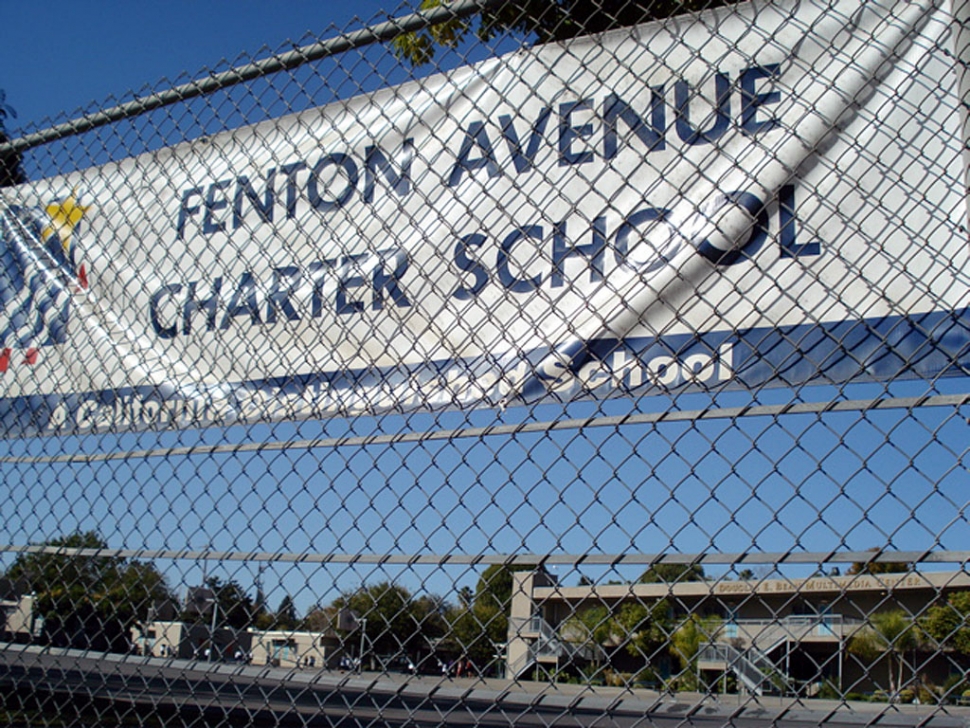 Fenton Avenue Charter School is one of the oldest and most successful charter schools in the State of California. Located in Lake View Terrace, in the San Fernando Valley, becoming an independent charter school transformed the campus from a school with test scores in the early 90's in the single digits, to becoming a California Distinguished School with test scores that exceed virtually all the other regular public schools in the northeast San Fernando Valley. By Chris Pavik — Wednesday, December 2nd, 2009
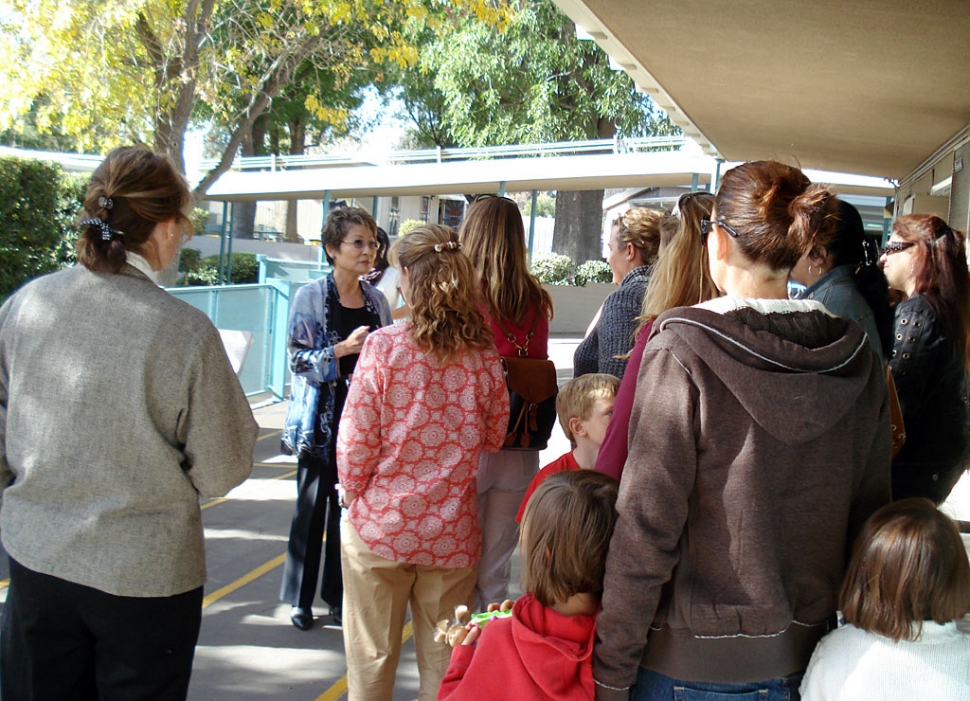 Piru parents, teachers and students listen as Fenton Charter School Director Irene Sumida explains why becoming a charter school will benefit Piru students, like it has benefited the students of their school. 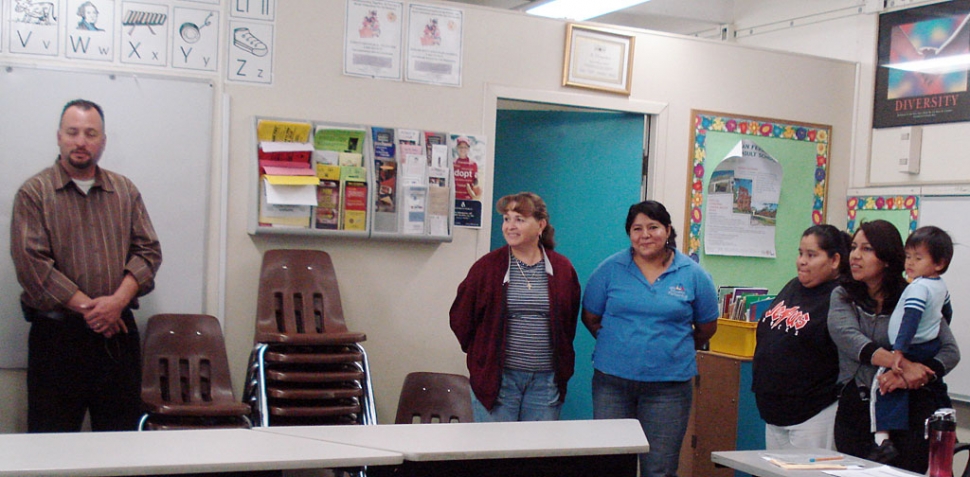 Fenton Charter School Family Center Director Tony Peña and Fenton parents share why they are so happy that their children attend a charter school, and say why they think it would be better for Piru children, too. 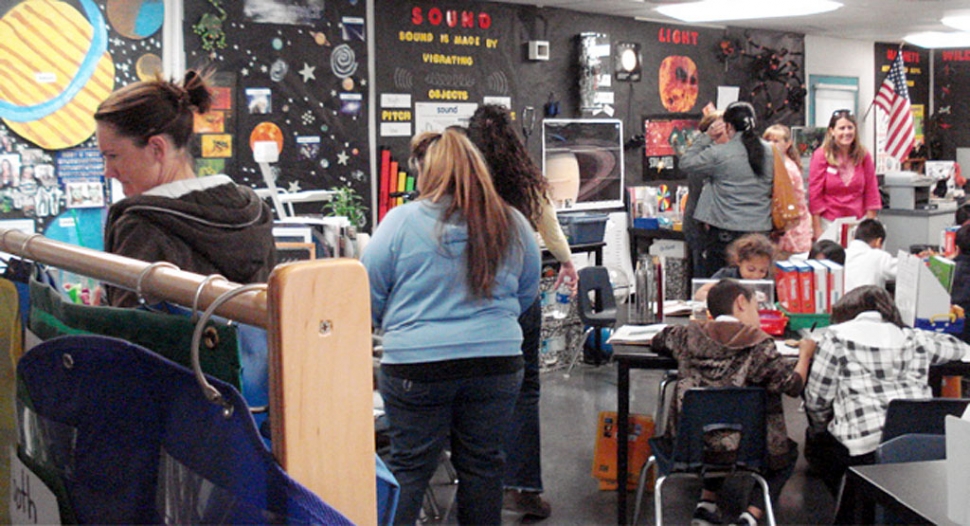 Piru visitors tour the primary grade science lab at Fenton Charter School, while Fenton students are working cooperatively on a project about ecosystems. 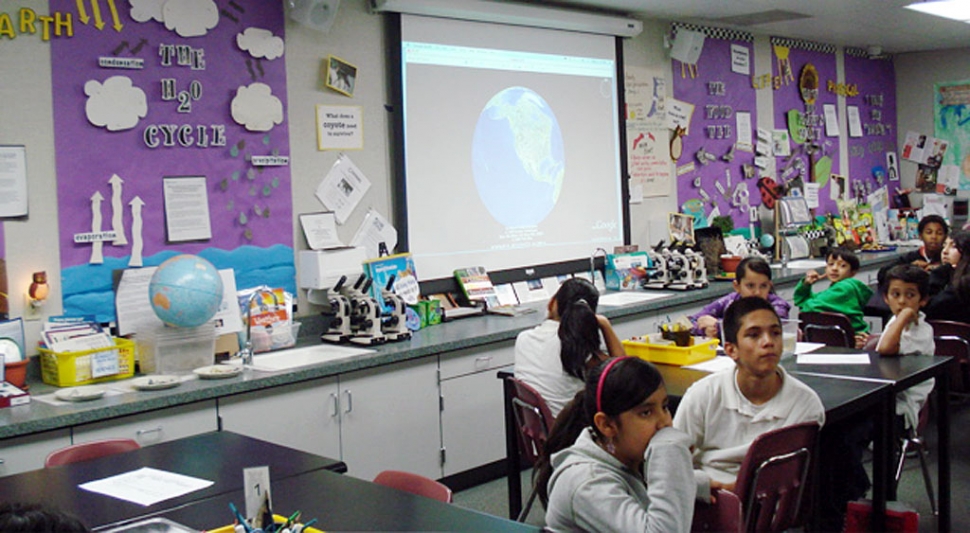 Piru visitors see Fenton Charter School's upper grade science lab, where students are learning about the geology of the sea floor. 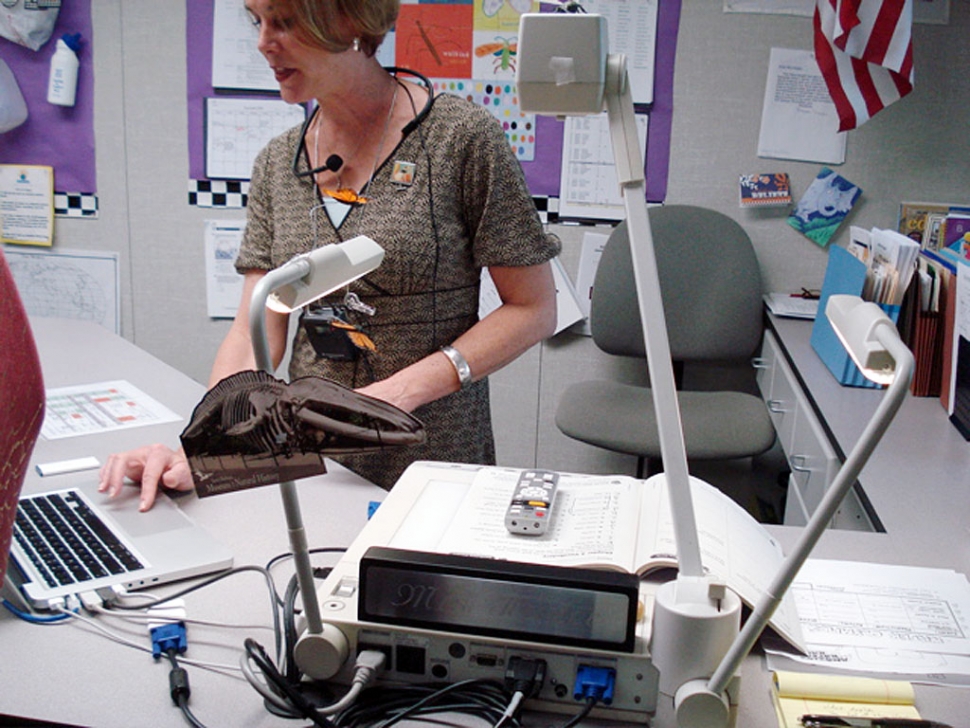 Every classroom at Fenton Charter School is equipped with a modern teacher workstation, where the teacher can present information on the LCD projector, control all the students' computers, and speak through a sound amplification system, so that all students can clearly hear, as well as see, every lesson. Are charter schools private? Do they charge money to attend? Do they provide fewer programs and services than regular public schools? Rumors and myths about charter schools have been spread around the Piru and Fillmore communities since nine Piru teachers submitted a petition to the Fillmore USD on September 16th to convert Piru Elementary into an independent charter school. On the day before Thanksgiving, a group of seven Piru school parents took a break from their holiday meal preparations to spend the morning finding out the facts for themselves by visiting a real charter school. They went, along with a small group of Piru teachers, to visit Fenton Charter School, in the northeast San Fernando Valley. Only 37 miles from Piru, Fenton is one of the oldest charter schools in California; it started in 1994 as one of the first independent conversion charters in the state, and its demographics almost exactly mirror those of Piru School: 87% of the students qualify for free and reduced lunch, 54% are in the English as a Second Language program, and come from a primarily Hispanic community. The visitors were greeted by Fenton Director Irene Sumida, who started at Fenton as an assistant principal before it became a charter school. “Districts tend to treat all schools as if they are the same,” Ms. Sumida told the group. “Why should you be treated that way? If your school is isolated from the District, don’t you (parents and teachers) know what is best for your school?” Also leading the tour was Tony Peña, the director of the Family Center at Fenton Charter School. Here parents come during the day to take ESL classes while a daycare and preschool is provided for their young children. Mr. Peña explained that he grew up in the neighborhood and attended Fenton before it was a charter, going on to Maclay Junior High and San Fernando High School, then returned to Fenton to work at the school before it became a charter, and has been working there since 1992. He still lives nearby, and both his daughters attended Fenton Charter School. He made the point that becoming a charter is so popular with the neighborhood parents that“98% of parents (at Fenton) prefer keeping their kids in a charter school (when they leave Fenton), and I was one of those parents.” At the Fenton Family Center, in the middle of the school’s campus, Mr. Peña introduced us to four of the parents who were taking ESL classes there, while their young children attended preschool right next door. They chuckled when asked if they were required to pay for services and were emphatic to stress that no fees are required from parents for any services. They all agreed with him that because Fenton is a charter school, it provides more services to the children and parents, from parent ESL classes, afterschool programs, more technology for the students, and a bigger voice for parents in how their school is run, and how the funds are spent. As Mr. Peña emphasized, because Fenton is an independent charter school, the money for the children’s education comes directly to their school, and the charter doesn’t “have to share (it) with the District office.” Ms. Sumida and Mr. Peña showed parents the clean, neat facilities, the well-provisioned cafeteria, and some of the 900 computers on the Fenton campus, introduced them to the four full-time technology specialists who keep those 900 computers up and running, guided them through Fenton’s own TV studio, which also serves as their school’s board room for council meetings, and took them through the science labs, art room and several regular classrooms, which have no more than 25 students. The lower grade classes get an aide for three hours daily, and the upper grades for 1.5 hours daily. At the end of the tour, the parents agreed that being a charter allowed Fenton the opportunity to do great things for kids, and hoped that other Piru parents would take the opportunity to visit charter schools, like Fenton, so they could see for themselves what becoming a charter could mean for Piru Elementary. Several of the parents offered to take back other interested parents who might like to visit Fenton Charter School for themselves. To reach them, please send an email to pirucharterschool@earthlink.net |
